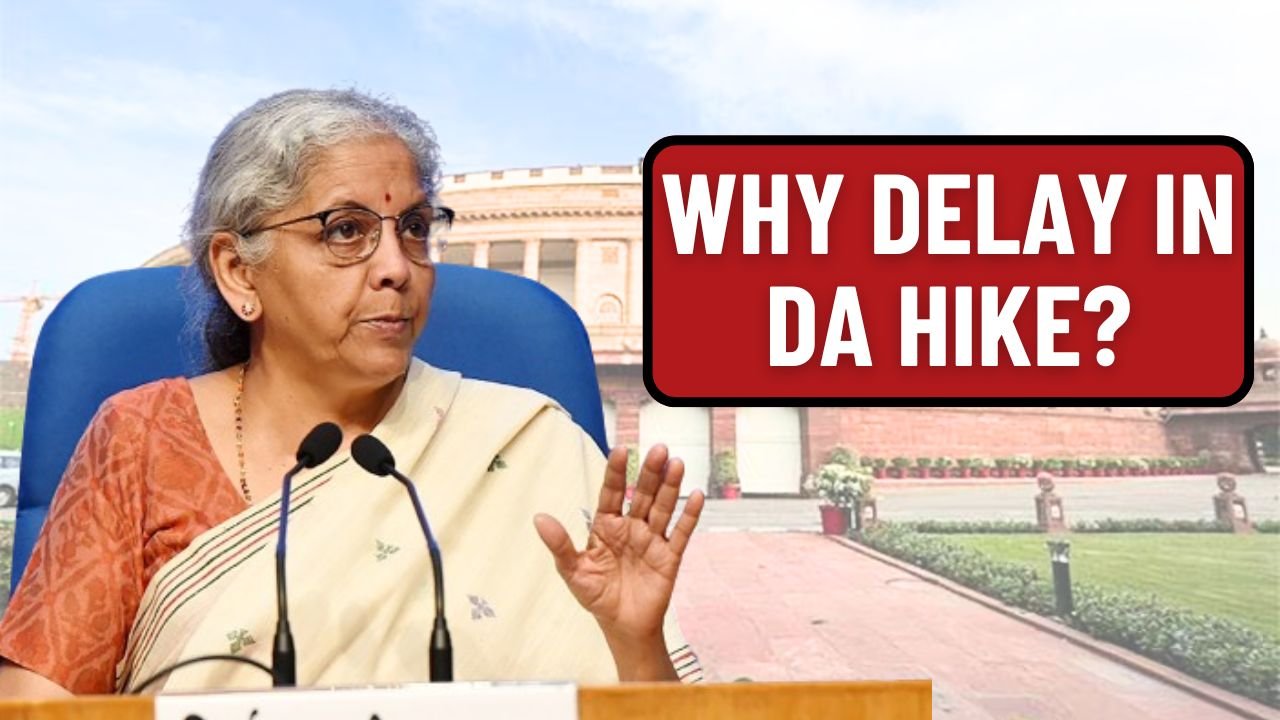The long-anticipated announcement regarding the Dearness Allowance (DA) and Dearness Relief (DR) hike for government employees and pensioners has not yet been made, despite earlier expectations around Holi. This has led to widespread speculation and concern among stakeholders. The government usually makes these announcements twice a year, in March and September, with the hike being implemented retrospectively from January and July. However, the absence of any official statement has raised questions about the reasons behind the delay.
DA Hike: No Announcement During Holi

In the previous revision covering July–December 2024, the government increased DA from 50% to 53% of the basic pay. This decision was announced in October before Diwali, bringing relief and festive cheer to central government employees. However, contrary to expectations, a similar pre-Holi announcement did not take place this time, creating uncertainty among employees and pensioners.
Stakeholders had anticipated that the matter would be discussed in the cabinet meeting on March 18. Yet, with no official confirmation, speculation has been rife regarding the delay. The wait has now extended beyond the usual timeframe, sparking discussions about potential procedural bottlenecks or broader economic considerations.
Potential Reasons Behind the Delay
While the government has not provided a formal explanation, several factors might be contributing to the postponement:
1. AICPI-IW Data and Inflation Trends
The All India Consumer Price Index for Industrial Workers (AICPI-IW), which plays a crucial role in determining DA for both public and private sector employees, showed a decline in January 2025. The index fell by 0.5 points to 143.2, indicating a slight easing of inflationary pressures. This change might have prompted further deliberations on aligning the hike with economic conditions.
2. The 8th Central Pay Commission’s Upcoming Implementation
The government has approved the formation of the 8th Central Pay Commission, which is expected to revise salaries and pension allowances for government employees. Set to come into effect in January 2026, this commission’s recommendations will significantly influence long-term pay structures. Authorities may be considering how the upcoming pay commission will impact DA adjustments, leading to a delay in the current revision.
3. Possible DA Merging with Basic Pay
There are ongoing discussions about the potential amalgamation of DA with the basic salary. If implemented, this move would result in a substantial increase in basic pay, potentially leading to higher salary revisions under the 8th Pay Commission. To prevent drastic fluctuations in the future, the government may be adjusting its approach to the current DA hike.
Conclusion
The delay in announcing the DA hike has left government employees and pensioners in a state of uncertainty. While economic factors, policy considerations, and the upcoming 8th Pay Commission may be influencing the postponement, employees remain hopeful for clarity soon. As discussions continue, all eyes remain on the government’s next move regarding this crucial financial relief.

